Geography as Design at Tachi Palace Casino
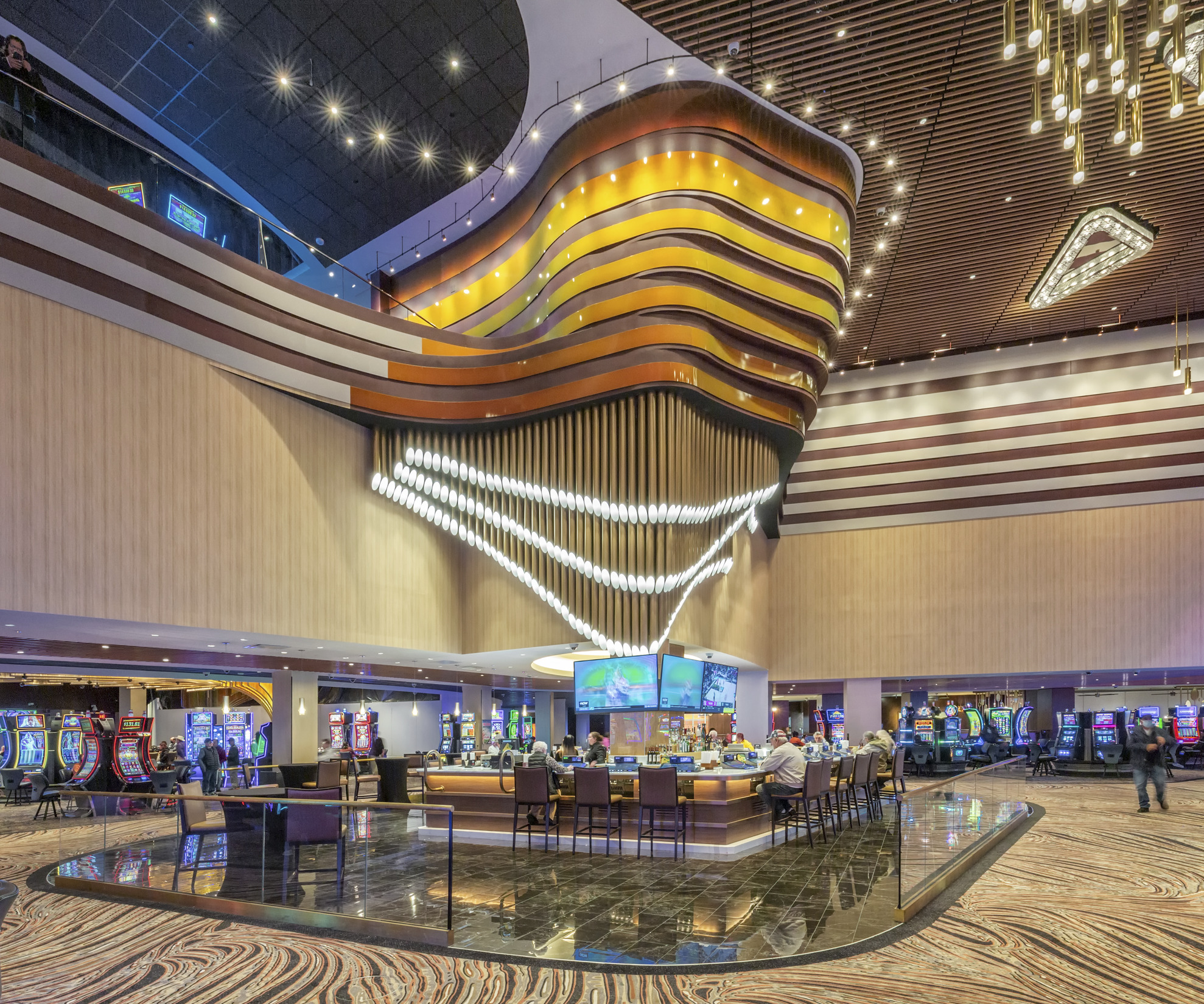
Cuningham’s addition and remodel to Tachi Palace Casino in Lemoore, California connects several existing venues—evoking the natural features of the Tachi-Yokut Tribe’s land while also playing important functional roles in the guest experience. The result is a gaming space that creates cultural connections through both form and function.
Understanding History
Before beginning the design process, Cuningham’s team worked closely with the Tribe to deeply understand the geography of the region, as well as the tribe’s traditional land uses.
Through these exploratory sessions, designers discovered that, among other things, there was once a lake on the property, though decades of nearby heavy farming and unsustainable land-use practices eroded and, eventually, erased this body of water. Today, water is found primarily in the many sloughs that run through the land. One of the central components of Cunigham’s design honors this lost water and visually represents importance to the tribe.
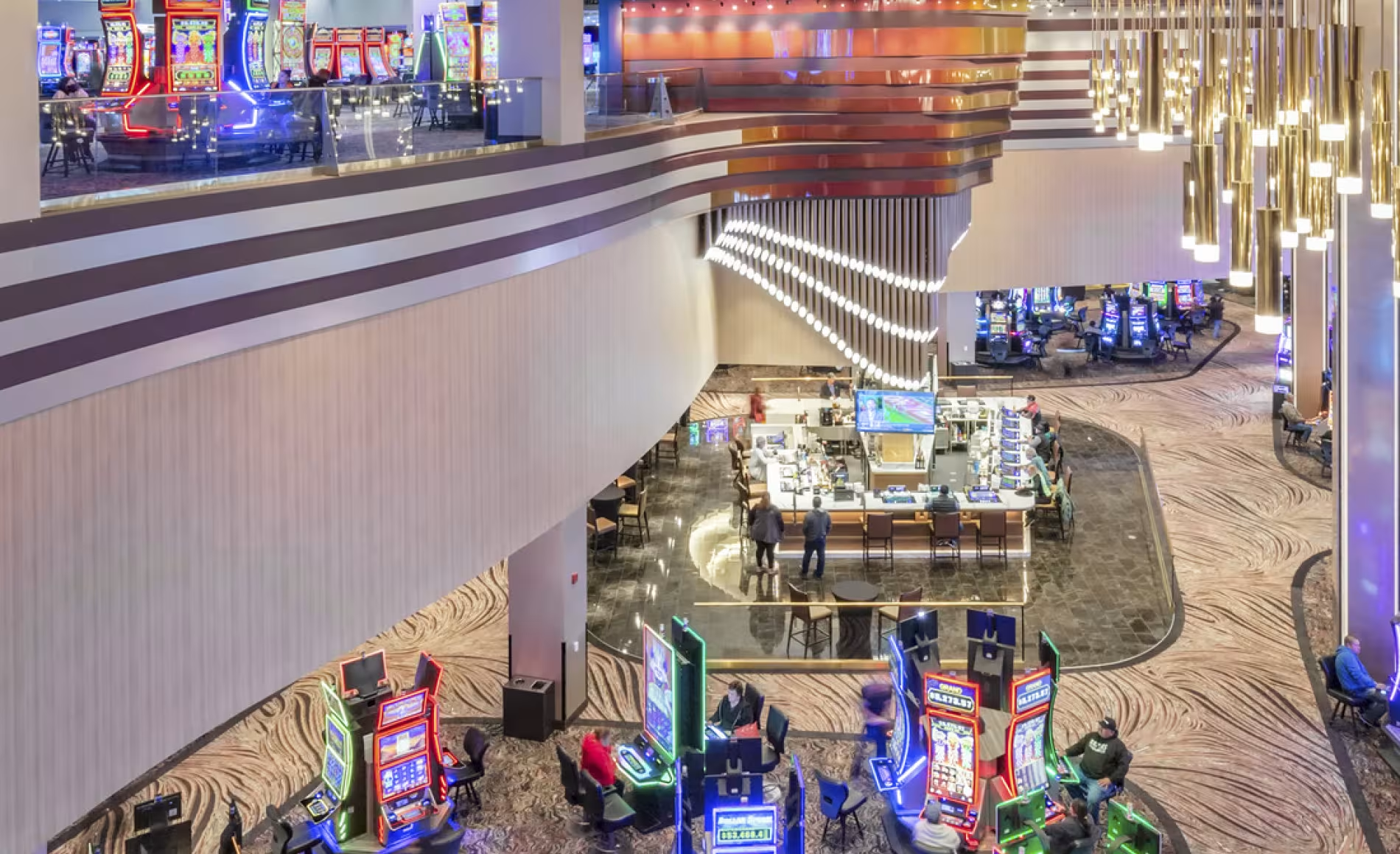
Form Meets Function
The geometry of the Tachi-Yokut Tribe’s land is reflected in every element of the final design — from the floor plan to the material specifications. These design elements aren’t just ornamental evocations of the surrounding natural landscape; they are functionally necessary to the unique guest experience crafted within.
This design approach is on display at the casino’s table games venue, where grand, mushroom-shaped lighting elements spring from the floor to provide overhead lighting and clear sight lines across the pit. As an important source of food for the tribe and a hallmark of the Tachi-Yokut land (which is home to the Tule fog, a thick ground fog in California’s Central Valley that produces fungi growth), it was important that mushrooms be reflected in the casino’s design.
Form meets function again in the winding carpet pathway that connects the casino’s various gaming venues. This custom-designed carpet evokes the textures and feeling of the Tule grass that springs from the land’s many snaking sloughs. Like the water and grass, this pathway peaks out from different areas, grabbing users’ attention and inviting them into other spaces they may not have realized existed
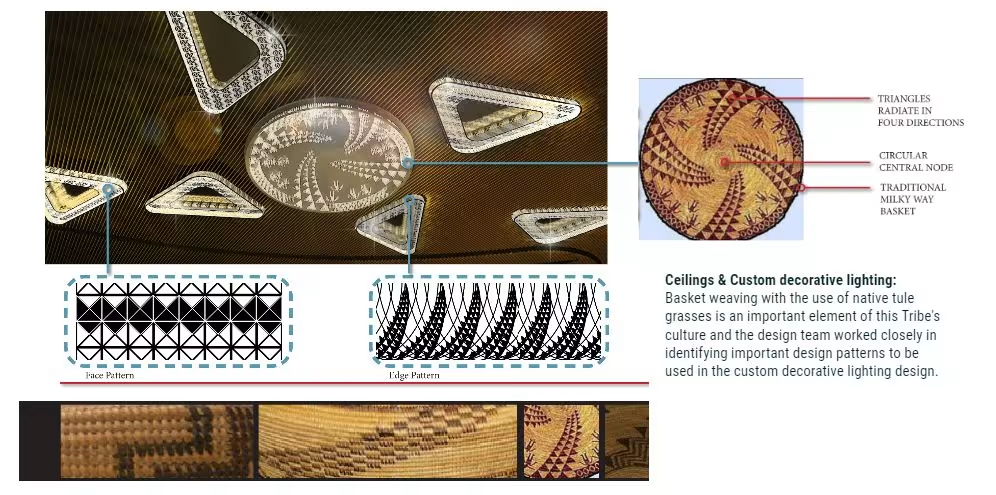
"When you have an expansion to multiple buildings, you can get lost. What we did was work with Cuningham to really gut the whole property, opening it up to create a seamless guest experience. We’re extremely happy with it."
Michael Olujic
CEO and General Manager, Tachi Palace
Similarly, the building’s ceiling elements are designed to evoke the dynamic, unpredictable, feeling of walking through nature. Just like how the sun shifts, bounces, and reflects off surfaces differently depending on their texture, placement, and the time of day, so too do the ceiling elements at Tachi Palace Casino shift and change.
Working with Moz Metals, Cuningham designers developed an entirely new, iridescent metal finish that visually changes as one interacts with it. In the same way sunlight may briefly hit a rock’s surface and cause a hiker to momentarily pause and admire the glisten, this metal finish is also fleeting and intangible, embodying the vast gradients of light that exist in nature.
Unlike color changing LED screens or other viewing media, which have preset video content, this element moves at the pace of the guest. While a guest may not consciously notice, the effect only adds to the sense of exploration one feels while traversing the space. In this way, a guest on the second floor will have a completely different visual experience of the space than a guest on the ground floor.
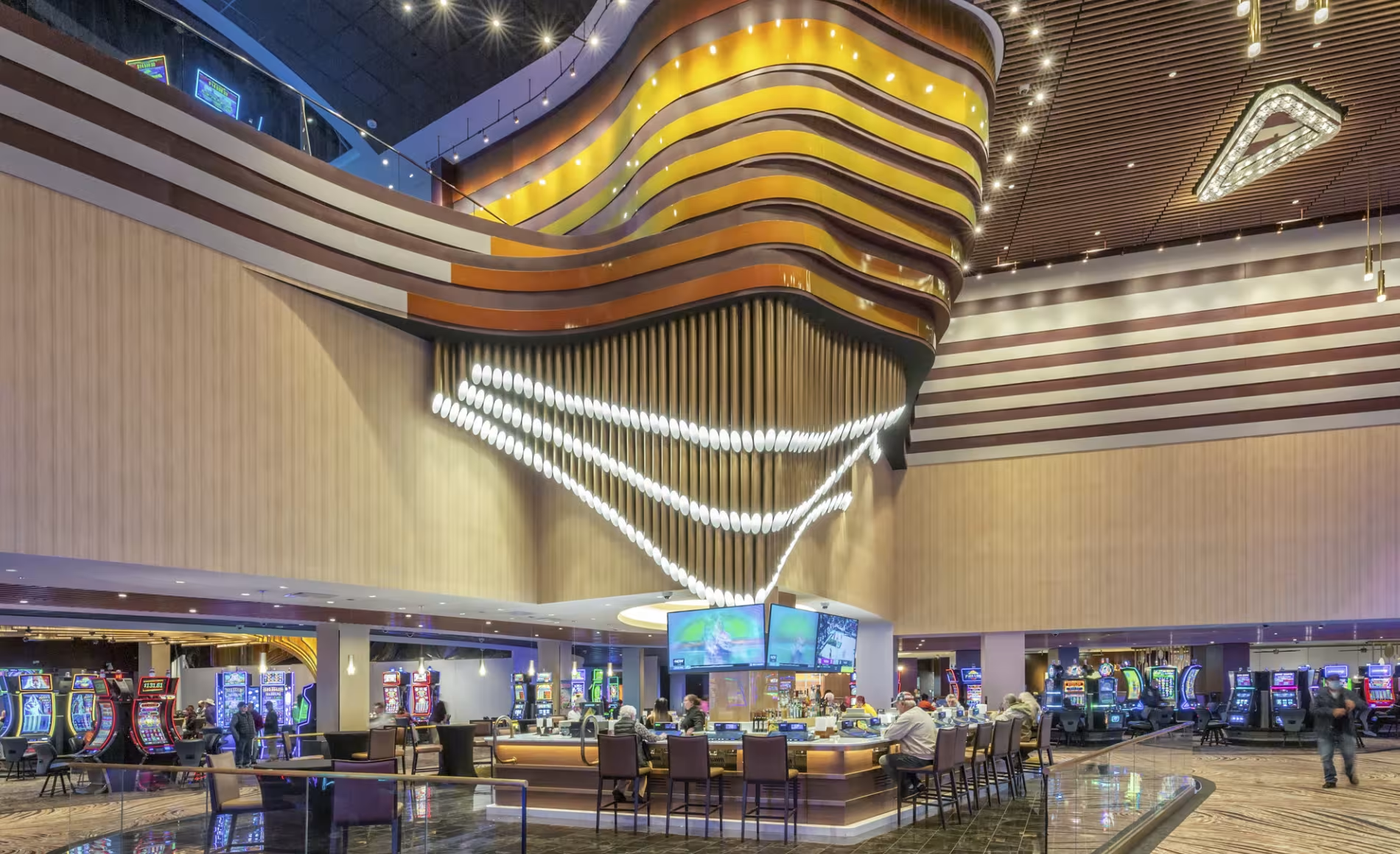
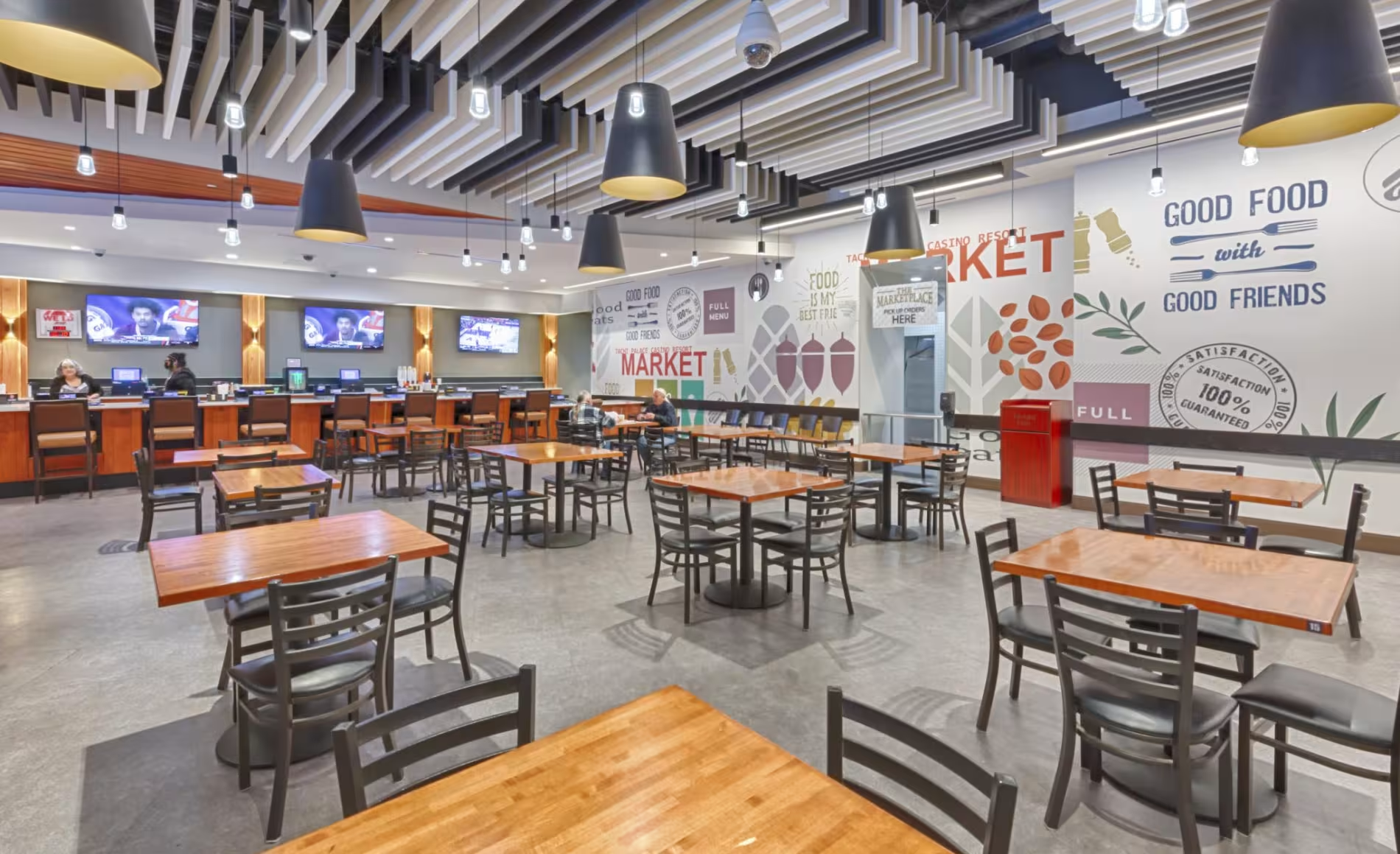
Exterior Design
On the casino’s exterior, native, water conscious plantings draw visitors into the entrance, create shade, and provide habitat. The shape of these natural elements are extended to the updated porte cochere, which takes the form of a traditional Tachi-Yokut grass dwelling — creating a welcoming experience that invites guests into the space.
Additionally, designers refreshed the building’s previous stucco exterior with a large LED screen and various lighting elements, making it more visible from a distance and visually appealing to passersby.
For more information on Cuningham's design for the remodel and addition to Tachi Palace Casino, connect with Brett Ewing below.
Contact Our Leaders
